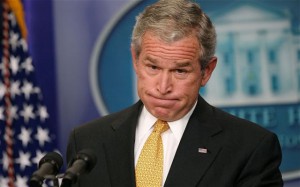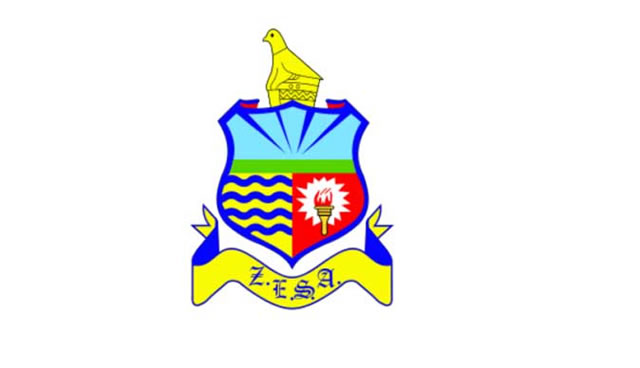Foreign aid hinders development in Africa

Gibson Mhaka
FRENCH philosopher and revolutionary Frantz Fanon in his anti-colonialism masterpiece, The Wretched of the Earth, refers to some among us as “spoilt children of yesterday’s colonialism . . . without pity. They use today’s national distress as a means of getting on through scheming”.
There is no doubt that Fanon’s observation applies to those people who have an impression that Africa is a basketful of problems; a continent characterised by devastating problems such as underdevelopment, backwardness, HIV and Aids, hunger and wars.
They solemnly believed that this “basket of shame” can only be emptied and eradicated by the West through aid channelled through international governmental aid agencies and economic communities such as United States Agency for International Development (USAID), Danish International Development Agency (Danida) and European Community (EC).
For these individuals, access to resources – including foreign aid – is like an investment. Foreign aid, they believe, can build people’s assets, support good governance and enhance skills and capacities to bring about transformation.
Development aid or development assistance comes in the form of operational, managerial and financial assistance which is given to NGOs and governments of developing countries. It is different from humanitarian aid that is given with the aim of easing poverty in the long-term, rather than lessening suffering in the short term.
The emergence of NGOs can be linked to an active attempt by neo-liberal powers in the west to thwart an anti-establishment movement in Africa. This is so because over the years, NGOs have packaged themselves as some sort of latter-day saints with Messianic powers.
They emerged as a sort of alternative to international multilateral financial institutions. Their job was and still is, to give a human face to the worldviews of hegemonic neo-liberal as well as neo-conservative institutions.
In their pseudo attempts to eradicate poverty and initiate development, it has been proved that NGOs are only treating the symptoms and not the cause of African challenges thereby perpetuating servitude and a dependence syndrome among the masses in the south. This is so because the self-appointed altruists would always insist on giving food aid – and indeed aid in general – without doing anything concrete to empower the people to provide for themselves.
NGOs, whether by design or by accident, thrive on African countries’ misfortunes and hence would love to see these misfortunes perpetuated ad infinitum. This is where the dialectical relationship between NGOs and global inequality stemming from colonialism and other holocausts perpetrated on the world’s non-white peoples comes in.
It is clear that they provide aid, as well as technical cooperation, in partnership with civil society, opposition parties and the private sector to advance their political and socio-economic interests of recipient countries.
For example, multilateral financial institutions – World Bank and the International Monetary Fund, whose task is to improve management, integrity, and functioning governments’ economic and financial institutions, have not been providing loans to African governments who pursue African-modelled policies to redeem the stricken train of development.
For these “radical” African governments to receive a substantial loan, they have to accept a prescribed dose of the much-reviled structural adjustment programmes (Saps) under which economic policies and relevant institutions are “reformed” with a view to “enhancing” economic growth, improving resource allocation, increasing economic efficiency and increasing the economy’s resilience to changes in its domestic or global markets.
These factors have, however, proved to be mere mirages as basically none of the countries that have adopted Saps (Zimbabwe and Ghana are cases in point) witnessed the promised sustainable development and growth. Rather, the Saps have done much to entrench the implementing countries’ ignominious status as markets of expensive western-produced goods and services, suppliers of cheap raw materials to the West and investment destinations of western capital.
Studies have shown that gestures of compassion, moral and economic support offered by donor agencies mostly in war-torn and hunger-stricken African countries, are meant to spearhead sinister western interests, not to improve the welfare of the people suffering in those countries.
Furthermore, it can be argued that the intervention by NGOs who are just opportunists craving for western glory and ideologies in time of “crisis” is not to alleviate the challenges, but to exploit economic opportunities that arise as a consequence of the difficulties in the afflicted countries.
They do this by establishing an economic control mechanism that requires the presence of the UN, which they control. There are no prizes for guessing that USAID will fund any organisation willing to advocate for a regime change in any country that might endanger America’s economic, political and military supremacy.
Think of the Zimbabwe Democracy and Economic Recovery Act (2001) signed by the then US President George Bush which set aside $6 million for agencies willing to work towards President Mugabe’s political collapse.
Foreign aid does not help development in Africa. In fact, it hinders it. This is so because these handouts encourage dependency and corruption. Foreign aid can be a curse when it makes beneficiaries not only dependent, but also lazy and hopeless.
If properly extracted and managed by indigenous people, the natural resources that Africa has can completely eradicate poverty and propel more durable economic growth and development. Foreign aid cannot do that.
For example, Zimbabwe is endowed with a wide range of minerals of which 10 out of 50, are being fully exploited, among them gold, platinum, nickel, diamond, chrome and coal. If these are extracted in a systematic manner and value added to them through processing, Zimbabwe would earn more from its resources and get on a stronger economic and social footing.
From this observation it is clear that if the Government designs an economic plan and law that correct existing economic injustices in the mining sector that seem to favour foreign investors, who are siphoning huge profits out of the country, there will be no need for foreign aid to address economic challenges bedevilling the country.
It is encouraging that the new Zanu-PF Government is geared towards this home-grown development thrust. According to a paper which was recently published by the European Centre for Development Policy Management, Africa is still failing to use its natural resources to fuel development and long term growth.
It says although the continent has 30 percent of the world’s extractive resources, and processes more than 60 types of metals, ores and minerals, even countries with relatively strong governance records, are failing to distribute this wealth, or invest it adequately in development, adding that an over-reliance on the extractive industries, rent-seeking behaviour (that is obtaining special favours) and corruption among politicians, and a lack of transparency sustained the “resource curse”.
Unfortunately, many countries have already signed bad contracts that give a disproportionate share of their resources to private foreign companies. There is a simple answer to this; renegotiate; if that is impossible, impose a windfall-profit tax.
Foreign aid has to a larger extent retarded development in Africa as it had destroyed Africans’ creativity. There is no doubt that the aid provided by the western countries is premised on how to break Africa and not to build Africa and the only solution is for African countries to get help from its own, from African countries.
This is so because many foreign companies who claim to be investors only exploit the African human and natural resources, doing nothing to contribute to the growth of Africa but rather developing their own economies in the West.
Foreign aid does not help Africa because most of the countries providing the aid always want something in return or have their interests in the receiving country and therefore it is not really aid. Where it is genuinely offered, it becomes concentrated in the hands of a few and does not get to the intended sector or beneficiaries.












Comments